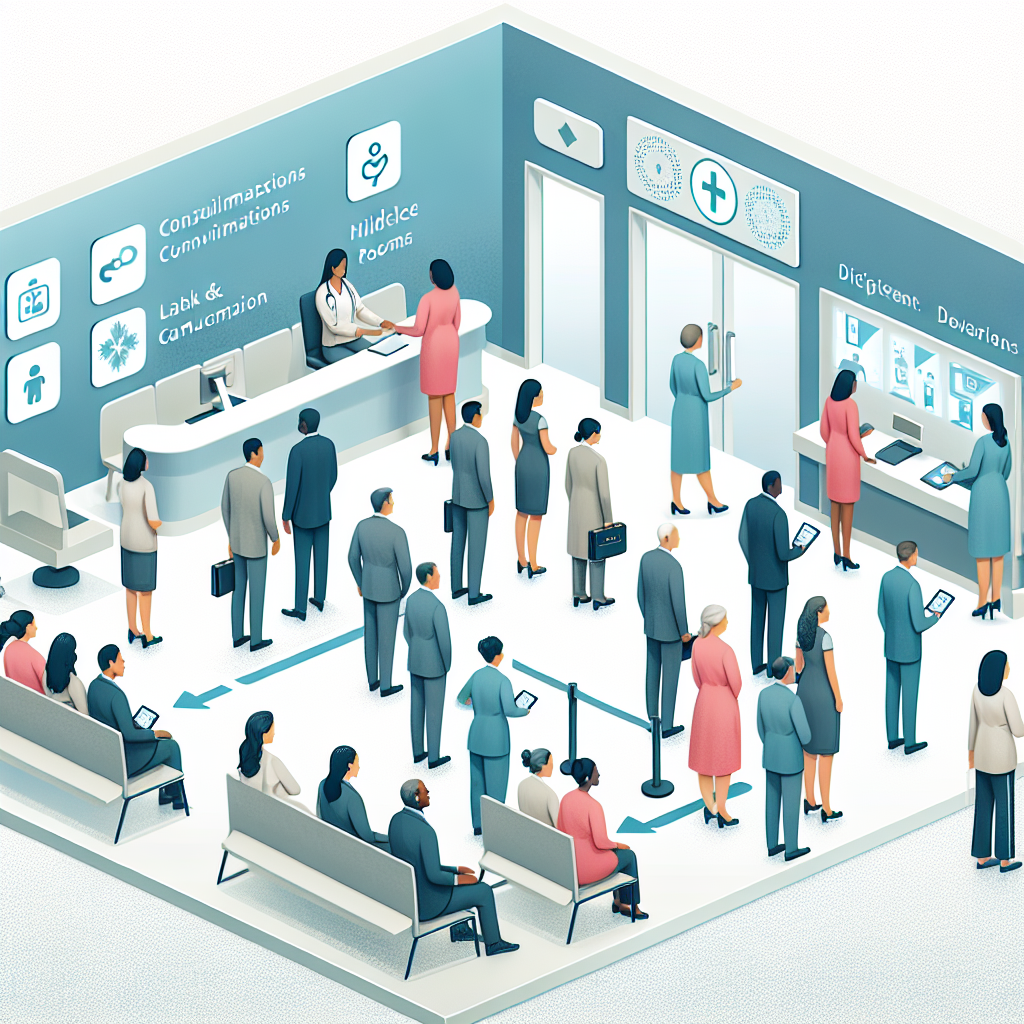Expanding Your Family with Donor Banks
In recent years, the concept of family expansion through donor banks has gained significant traction. Whether due to medical conditions, same-sex partnerships, or single parenthood, many individuals and couples are turning to sperm and egg donation as a viable option for starting or growing their families. This article delves into the multifaceted world of donor banks, exploring the various aspects that prospective parents should consider when embarking on this journey.
Understanding Donor Banks
Donor banks are specialized facilities that provide sperm and egg donations to individuals and couples looking to conceive. These banks play a crucial role in assisted reproductive technology (ART), offering a range of services that include screening, storage, and distribution of donor gametes. Understanding how donor banks operate is essential for anyone considering this route to parenthood.
Types of Donor Banks
Donor banks can be categorized into two main types: private and public. Each type has its unique features and benefits.
- Private Donor Banks: These are often for-profit organizations that provide a wide range of services, including extensive donor screening and genetic testing. They typically have a larger selection of donors and may offer more personalized services.
- Public Donor Banks: These are usually non-profit organizations that may have a more limited selection of donors. They often focus on providing affordable options for individuals and couples who may not have the financial means to access private donor banks.
Regardless of the type, donor banks must adhere to strict regulations and guidelines to ensure the safety and health of both donors and recipients. In the United States, the Food and Drug Administration (FDA) regulates sperm and egg donation, requiring rigorous screening for infectious diseases and genetic conditions.
The Donation Process
The process of donating sperm or eggs involves several steps, including screening, testing, and counseling. Donors must undergo a thorough medical evaluation, which typically includes:
- Medical history assessment
- Genetic testing
- Infectious disease screening
- Psychological evaluation
Once a donor is accepted, their gametes are collected, processed, and stored in cryogenic facilities. This ensures that the sperm or eggs remain viable for future use. The entire process is designed to ensure the highest quality and safety standards, providing peace of mind for prospective parents.
Legal and Ethical Considerations
When using donor banks, it is crucial to understand the legal and ethical implications involved. Issues such as donor anonymity, parental rights, and the potential for future contact with donors can complicate the process. Many donor banks offer options for anonymous or known donations, each with its own set of legal considerations.
For example, in anonymous donations, the donor’s identity is kept confidential, while known donations allow for potential future contact between the donor and the child. Prospective parents should carefully consider which option aligns with their values and family dynamics.
Costs and Financial Considerations
The financial aspect of using donor banks can be significant. Costs can vary widely depending on the type of donor bank, the services provided, and the number of cycles needed for successful conception. On average, the cost of sperm donation can range from $300 to $1,000 per vial, while egg donation can cost anywhere from $5,000 to $15,000 or more.
In addition to the cost of the donor gametes, prospective parents should also consider:
- Medical expenses related to fertility treatments
- Legal fees for contracts and agreements
- Potential travel costs for treatments
Many insurance plans do not cover the costs associated with donor banks, making it essential for individuals and couples to budget accordingly. Some donor banks offer financing options or payment plans to help ease the financial burden.
Success Rates and Factors Influencing Outcomes
Success rates for conception using donor gametes can vary based on several factors, including the age of the recipient, the quality of the donor gametes, and the type of fertility treatment used. According to the American Society for Reproductive Medicine (ASRM), the success rates for intrauterine insemination (IUI) using donor sperm range from 10% to 20% per cycle, while in vitro fertilization (IVF) success rates can be higher, particularly for younger egg donors.
Factors influencing success rates include:
- The age of the egg donor: Younger donors typically have higher success rates due to better egg quality.
- The health and lifestyle of the recipient: Factors such as smoking, obesity, and underlying health conditions can impact fertility.
- The type of fertility treatment used: Different methods have varying success rates, and some may be more suitable for specific situations.
Understanding these factors can help prospective parents make informed decisions about their family-building journey.
Choosing the Right Donor
Choosing the right donor is one of the most critical decisions prospective parents will make when using donor banks. This choice can have lasting implications for the child and the family dynamic. Here are some key considerations to keep in mind when selecting a donor.
Donor Profiles and Information
Most donor banks provide detailed profiles of their donors, which may include:
- Physical characteristics (height, weight, eye color, hair color)
- Educational background and profession
- Personal interests and hobbies
- Medical history and genetic screening results
Prospective parents should carefully review these profiles to find a donor who aligns with their values and preferences. Some may prioritize physical traits, while others may focus on educational background or personality traits. It’s essential to have open discussions with partners about what qualities are most important.
Genetic Considerations
Genetic screening is a crucial aspect of the donor selection process. Many donor banks conduct extensive genetic testing to identify potential hereditary conditions that could be passed on to the child. Prospective parents should inquire about the specific tests performed and the results available for each donor.
Understanding the genetic background of a donor can help mitigate the risk of passing on genetic disorders. For example, if a donor is a carrier of a specific genetic condition, it may be advisable to choose a different donor to reduce the risk of the child inheriting that condition.
Emotional and Psychological Factors
The emotional aspect of choosing a donor cannot be overlooked. Prospective parents may experience a range of feelings, including anxiety, excitement, and uncertainty. It’s essential to approach this decision with care and consideration.
Some parents may choose to involve a therapist or counselor specializing in fertility issues to help navigate the emotional complexities of donor selection. This support can provide valuable insights and coping strategies, ensuring that both partners feel comfortable with their choice.
Legal Considerations in Donor Selection
Legal considerations are also paramount when selecting a donor. Prospective parents should be aware of the legal rights of donors, especially in cases of known donations. It’s crucial to have clear agreements in place regarding parental rights, responsibilities, and potential future contact with the donor.
Consulting with a legal professional experienced in reproductive law can help ensure that all parties understand their rights and obligations. This step is particularly important for same-sex couples or single parents who may face unique legal challenges.
Future Contact and Openness
Deciding whether to have future contact with the donor is a significant consideration for many prospective parents. Some may prefer an anonymous donor, while others may wish to establish a relationship with the donor for the child’s sake. This decision can impact the family dynamic and the child’s understanding of their origins.
Open communication between partners about these preferences is essential. Additionally, some donor banks offer options for future contact, allowing families to maintain a connection with the donor if desired.
The Journey of Pregnancy and Parenthood
Once a donor has been selected, the next step is to embark on the journey of pregnancy and parenthood. This phase can be both exciting and challenging, as prospective parents navigate the complexities of fertility treatments and the emotional rollercoaster that often accompanies them.
Fertility Treatments: Options and Processes
There are several fertility treatment options available for individuals and couples using donor gametes. The choice of treatment will depend on various factors, including medical history, age, and personal preferences. Common options include:
- Intrauterine Insemination (IUI): This procedure involves placing donor sperm directly into the uterus during ovulation, increasing the chances of conception.
- In Vitro Fertilization (IVF): In this process, eggs are retrieved from the ovaries and fertilized with donor sperm in a laboratory setting. The resulting embryos are then transferred to the uterus.
- Egg Donation: For individuals with fertility issues related to egg quality, using donor eggs can be an effective solution. The process is similar to IVF but involves fertilizing donor eggs with sperm.
Each treatment option has its own success rates, costs, and emotional implications. Prospective parents should work closely with their fertility specialists to determine the best approach for their unique situation.
Emotional Support During the Process
The journey to parenthood through donor banks can be emotionally taxing. It’s essential for prospective parents to seek emotional support throughout the process. This support can come from various sources, including:
- Therapists or counselors specializing in fertility issues
- Support groups for individuals and couples using donor gametes
- Friends and family who can provide encouragement and understanding
Engaging in open conversations about feelings, fears, and hopes can help alleviate some of the emotional burdens associated with fertility treatments. It’s important to remember that seeking help is a sign of strength, not weakness.
Preparing for Parenthood
As prospective parents move closer to conception, it’s essential to prepare for the realities of parenthood. This preparation can include:
- Educating themselves about pregnancy and childbirth
- Creating a supportive home environment for the child
- Discussing parenting philosophies and approaches with their partner
Being proactive in these areas can help ease the transition into parenthood and foster a nurturing environment for the child.
Legal Considerations Post-Conception
Once conception occurs, it’s crucial to address any legal considerations related to parenthood. This may include:
- Establishing parental rights through legal documentation
- Understanding the implications of donor anonymity or known donations
- Preparing for potential future contact with the donor, if applicable
Consulting with a legal professional can help ensure that all necessary steps are taken to protect the rights of both parents and the child.
Building a Family Narrative
As children grow, it’s essential for parents to consider how they will discuss their origins with them. Building a family narrative that includes the story of how they came to be can foster a sense of belonging and understanding. Parents should approach this topic with openness and honesty, allowing children to ask questions and express their feelings.
Creating a positive narrative around donor conception can help children feel secure in their identities and foster healthy relationships with their parents.
Long-Term Considerations and Implications
Expanding a family through donor banks is a significant decision that comes with long-term implications. As children grow, parents must navigate various challenges and considerations related to their unique family structure.
Identity and Understanding Origins
As children reach adolescence and adulthood, they may begin to question their origins and identity. It’s essential for parents to create an environment where these discussions can take place openly. Research indicates that children conceived through donor gametes often have a strong desire to learn about their biological origins.
Parents should be prepared to answer questions and provide information about the donor, as well as the circumstances surrounding their conception. This openness can help children feel more secure in their identities and foster a sense of belonging within the family.
Health Considerations and Genetic Testing
As children grow, it’s important for parents to remain vigilant about health considerations related to their donor’s genetic background. Regular check-ups and discussions with healthcare providers about any potential hereditary conditions are essential.
Parents may also consider genetic testing for their children, especially if there are concerns about specific conditions that may run in the donor’s family. Staying informed about health risks can help parents provide the best care for their children.
Legal Rights and Responsibilities
As children reach adulthood, legal considerations may come into play regarding their rights and responsibilities. This may include issues related to inheritance, medical decisions, and potential contact with the donor. Parents should be proactive in discussing these matters with their children and ensuring they understand their rights.
Consulting with legal professionals can help clarify any questions or concerns regarding parental rights and responsibilities as children grow older.
Building Relationships with Donors
For families who chose known donors, maintaining a relationship with the donor can be a complex but rewarding experience. Open communication and clear boundaries are essential for ensuring that all parties feel comfortable and respected.
Parents should discuss with their children how they feel about the donor and whether they wish to maintain contact. This dialogue can help foster healthy relationships and provide children with a sense of connection to their origins.
Creating a Supportive Community
Building a supportive community is vital for families created through donor banks. Connecting with other families who have similar experiences can provide valuable insights and support. Parents can seek out local or online support groups, attend workshops, or participate in community events focused on donor conception.
Creating a network of support can help families navigate the unique challenges they may face and foster a sense of belonging within their communities.
Conclusion
Expanding your family through donor banks is a complex yet rewarding journey that requires careful consideration and planning. From understanding the intricacies of donor banks to navigating the emotional and legal aspects of donor selection, prospective parents must be well-informed to make the best decisions for their families.
As families grow and evolve, open communication, emotional support, and a strong sense of community will play crucial roles in fostering healthy relationships and identities. By approaching this journey with knowledge and compassion, individuals and couples can create loving families that thrive despite the unique challenges they may face.
Ultimately, the decision to use donor banks is deeply personal and should align with the values and aspirations of those involved. With careful planning and support, expanding your family through donor banks can lead to fulfilling and enriching experiences for all.





